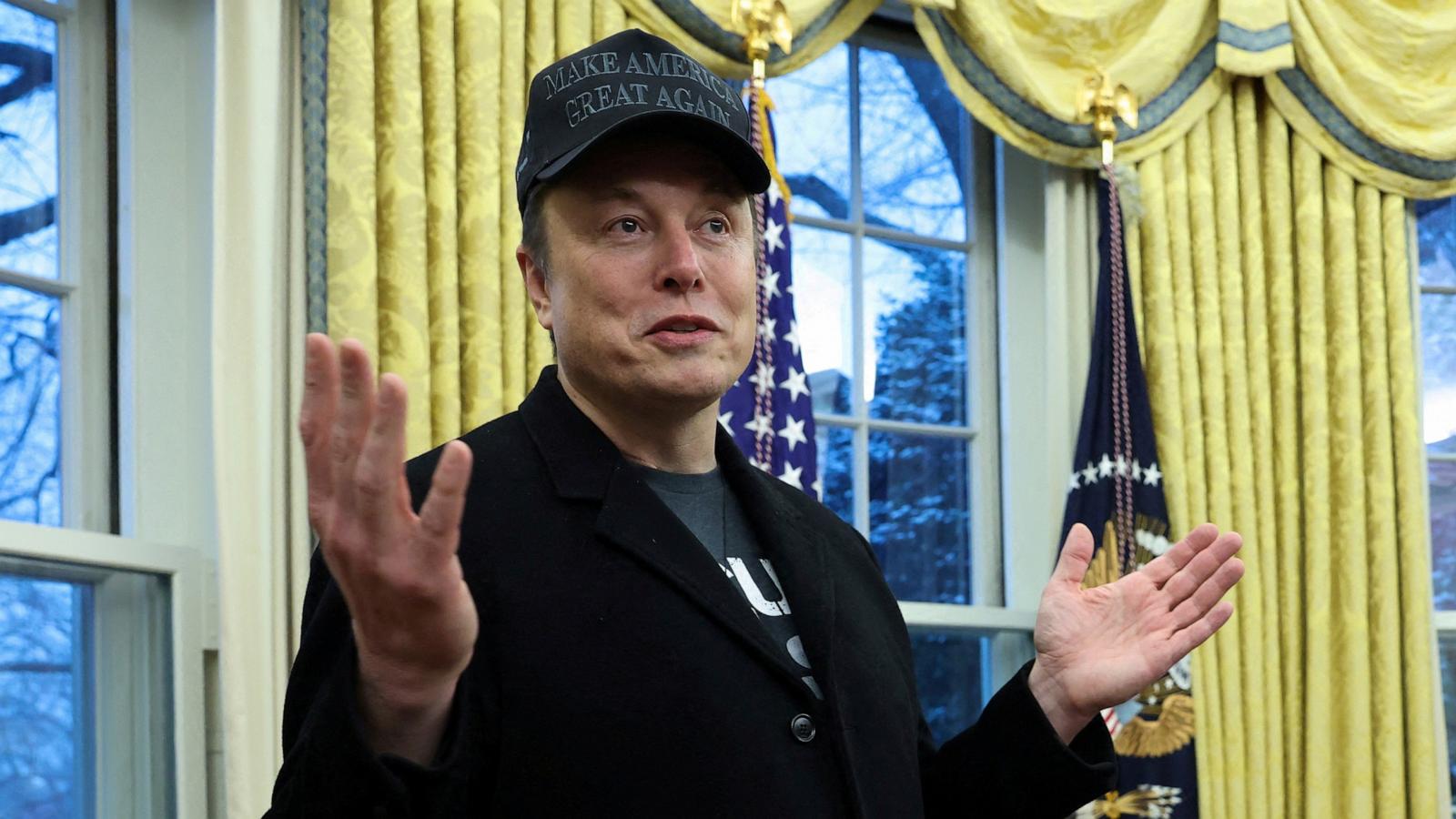A federal judge in Washington on Tuesday denied an urgent request to block Elon Musk and the Department of Government Efficiency from firing employees or accessing sensitive records from a half a dozen government agencies.
U.S. District Judge Tanya Chutkan — who previously oversaw President Donald Trump’s criminal election interference case — said the states didn’t show that immediate irreparable harm would result, noting that the court cannot act based on media reports.
“Plaintiffs ask the court to take judicial notice of widespread media reports that DOGE has taken or will soon take certain actions, such as mass terminations.” But these reports cannot substitute for “specific facts in an affidavit or a verified complaint” that “clearly show that immediate and irreparable injury, loss, or damage will result,” Judge Chutkan wrote.
Fourteen state attorneys general were seeking a temporary restraining order that would block DOGE from firing employees or accessing data from the Departments of Education, Labor, Health and Human Services, Energy, Transportation, Commerce, and Office of Personnel Management as part of Trump’s campaign promise to slash the federal government.
The 14 states last week filed a federal lawsuit alleging that Musk’s “expansive authority” is in violation of the Appointments Clause of the U.S. Constitution, which calls for anyone deemed a “principal officer” of the U.S. government to be formally nominated by the president and confirmed by the Senate.
Describing the states’ request for a temporary restraining order as “prophylactic,” Judge Chutkan expressed skepticism during a hearing Monday about issuing a wide-reaching order while the plaintiffs struggled to prove a concrete harm stemming from DOGE’s conduct.
“The court can’t act based on the media reports. We can’t do that,” Chutkan said. “The things that I’m hearing are concerning indeed and troubling indeed, but I have to have a record, and I have to make a finding on the facts before I issue something.”

The judge said that in order to issue such an urgent temporary restraining order, the states would have to prove a threat of “extreme” and “imminent harm” that “can’t be undone” — and although having to “scramble to rehire” laid-off employees might be difficult and challenging, it can be done.
“I’m not seeing it so far,” she said of the harms the plaintiffs are claiming.
Chutkan, however, sharply questioned why the government lawyers appeared to have few details about DOGE’s overall conduct, including the number of firings across the federal government to date.
“The firing of thousands of federal employees is not a small or common thing. You haven’t been able to confirm that?” Chutkan asked the attorneys. “I think it will be very relevant to me to know whether thousands of federal employees have been terminated on Friday.”
Chutkan noted that what she called DOGE’s “unpredictable and scattershot” tactics made it harder for the state attorneys general to prove a concrete, immediate harm — though she acknowledged the seriousness of the allegations levied by state attorneys general.
“DOGE appears to be moving in no sort of predictable and orderly fashion,” Chutkan said. “This is essentially a private citizen directing an organization that’s not a federal agency to have access to the entire workings of the federal government, fire, hire, slash, contract, terminate programs, all without apparently any congressional oversight.”
The states’ lawsuit is one of at least 73 suits that have been filed challenging Trump’s executive actions in his first month back in office, with many of them resulting in temporary restraining orders.
Over the last week, courts have ruled that DOGE is temporarily barred from accessing sensitive Treasury Department information and payment systems; that agencies that maintain public health data must restore their websites and databases; that the State Department must pause the implementation of Trump’s sweeping 90-day foreign aid freeze and the dismantling of the Consumer Financial Protection Bureau; and that the National Institutes of Health cannot reduce their cap on indirect funding for research, nor can the federal government withhold any federal funding because a health care entity or professional provides gender-affirming medical service to a minor.
While the Trump administration notched some wins in court last week — including rulings allowing DOGE to continue accessing some sensitive records and giving the green light for an unprecedented federal buyout — the president and his allies like Musk and Vice President JD Vance have begun floating the idea of pushing back on the courts.
“He who saves his Country does not violate any Law,” Trump wrote on social media over the weekend.
Over the weekend, the Trump administration, in an application to the Supreme Court, lambasted the series of legal setbacks the president has faced, telling the high court that the lower court rulings “irreparably harm the Presidency by curtailing the President’s ability to manage the Executive Branch in the earliest days of his Administration.”
“The district court’s order exemplifies a broader, weeks-long trend in which plaintiffs challenging President Trump’s initiatives have persuaded district courts to issue TROs that intrude upon a host of the President’s Article II powers,” wrote Solicitor General Sarah Harris.
The rapid pace of litigation is set to continue with at least eight separate cases scheduled to have court hearings this week.
ABC News: Top Stories
Read the full article .


